It’s the decades-old question: Which one is better? Electric cars vs hydrogen cars? Some people say electric cars are the way to the future, while others do believe that hydrogen cars are a more efficient option. So, which one is it?
It will have to depend on what you are looking for in your automobile. If you’re interested in environmental friendliness, then electric cars are probably the way to go. Electric cars produce zero emissions, while hydrogen cars still produce some emissions – although they’re much lower than those of traditional petrol or diesel cars. But we will get to why hydrogen is not as environmentally friendly as electric cars.
If you’re looking for instant refueling and range, then hydrogen cars might be a better option. Hydrogen cars have been known to outperform electric cars in terms of refueling time. But the problems are far greater in the way to having a decent fuel cell car or FCEV to become a more popular choice.
So, there you have it – it really is going to “depend” on what your priorities are. If you’re interested in being as eco-friendly as possible, then electric cars are the way to go. But if you’re looking for fast refueling to get over the fear of losing range while driving, FCEV could be your possible beast. Whichever way you go, you can’t go wrong, at least in theory!
Range anxiety is the number one reason that makes people think not even twice but hundred times before shifting to EVs. However, that should make one shift towards hydrogen cars but then the high cost of cars and scarcity of refueling station comes in, food for thought? Why hydrogen outperforming electric cars is less likely to happen anytime soon?
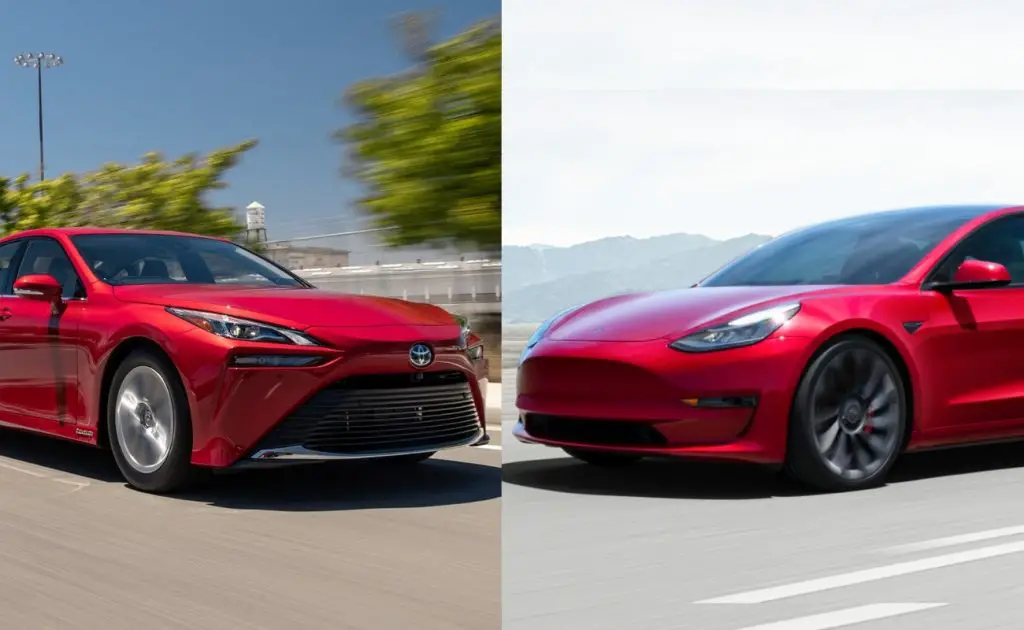
Table of Contents
Hydrogen Fuel Cell Cars
Hydrogen cars could become a popular choice for those looking for an absolute eco-friendly vehicle (which presently is still a work in progress). These cars use hydrogen gas to power their motor, instead of petrol or diesel.
Hydrogen is a clean-burning fuel that produces no harmful emissions, making it a much more environmentally-friendly option than traditional petrol or diesel cars. However, producing hydrogen largely depends on the gas-based production process and is therefore not absolutely clean.
Fuel cell hydrogen cars or FCEVs work by converting the chemical energy of hydrogen gas into electrical energy to run the vehicle. Currently, only two automobile makers are working with the tech, Toyota with the first FCEV Mirai and Hyundai Nexo.
Fuel cell cars are very efficient and can have a range of roughly 300 miles (480 kilometers) on a single tank of hydrogen. In fact, Toyota Mirai made a world record for covering 845 miles on a full tank of hydrogen in August 2021.
Pros & Cons of Hydrogen Fuel Cell Cars
Though hydrogen cars are still in their infancy, they offer a promising alternative to traditional gasoline cars. Hydrogen cars emit no pollutants and have the potential to be more fuel efficient than gasoline cars. Additionally, hydrogen is an abundant resource, making it a sustainable option for powering vehicles.
Despite these advantages, hydrogen cars face several challenges. Hydrogen is difficult to store and transport, making it infrastructure-dependent. Additionally, hydrogen cars are currently more expensive than gasoline cars. However, as technology improves and costs decrease, hydrogen cars may become a more viable option for drivers.
Pros
-
- Zero Emission
One of the biggest benefits is that they produce zero emissions, making them much better for the environment than gasoline-powered vehicles. - Efficient
Additionally, hydrogen cars tend to have a longer range than electric vehicles and can be refueled much more quickly. Hydrogen cars are also becoming increasingly more affordable, as new technologies are developed and producing/storing hydrogen becomes. - Cleans Air
According to Toyota, their FCEV Mirai cleans the air and claims it to be a negative emission vehicle capturing even the fine PM2.5 particles. Hydrogen or fuel cell cars require oxygen to harness electricity from the chemical reaction of hydrogen and oxygen. In this process, air goes through numerous membranes ultimately flushing out cleaner air back into the atmosphere.
- Zero Emission
Cons
While hydrogen cars do have some advantages being efficient and good on the carbon emission front, there are also several disadvantages to consider:
- Less Number Of Refueling Stations
One of the biggest drawbacks is that there are very few refueling stations currently available for hydrogen cars. This means that drivers of these vehicles may have to travel far out of their way to find a place to fill up. - Expensive
Additionally, hydrogen cars are often more expensive than traditional gasoline-powered vehicles. Another downside to owning a hydrogen car is that it can emit pollutants, such as nitrogen oxides and carbon monoxide. However, newer models of these vehicles are becoming more efficient and emitting less pollution. - Safety
Finally, some experts worry about the safety of using hydrogen as a fuel, as it is highly combustible. However, most manufacturers have taken steps to make their hydrogen cars as safe as possible.
Production Hydrogen Fuel Cell Cars
Two mainstream FCEV makers are Toyota and Hyundai along with some other budding players in the market BMW plans to launch its FCEV in 2025 with Toyota’s help. Toyota’s first mass-produced hydrogen car, the Mirai, was launched in 2014. Since then, Toyota has sold over 25,000 Mirai worldwide.
Toyota has also developed a system to store and dispense hydrogen gas safely. The majority of these sales have been in California, where there is a growing infrastructure of hydrogen fueling stations. Hyundai Nexo was launched in 2018 and starts at a sticker price of $59,435 in the US.
Despite its progress, Toyota faces several challenges in making its hydrogen cars a success. One of the primary challenges is the lack of hydrogen fueling infrastructure. There are currently only a handful of public hydrogen stations in the United States, and most are in California. This means that Toyota’s hydrogen cars can only be used by a small number of people who lives near a refueling station.
The Mirai sticker price starts from about $49,000, which is much more than a comparable gasoline-powered car. Mirai is available in Japan, the US, Canada, and Europe so far. Toyota is working to reduce the cost of its hydrogen cars, but it will likely take many years before they are affordable and viable for most people. However, even with these challenges, Toyota remains committed to hydrogen cars as a key part of its long-term vision for sustainable transportation.
Hyundai Nexo hydrogen car sales have been strong since its launch in 2018. The South Korean automaker has sold over 10,000 units of the plug-in hydrogen car in markets such as the United States, Europe, and Asia. The Hyundai Nexo is one of the few hydrogen cars on the market and is seen as a key player in the push for wider adoption of the technology.
Hyundai is banking on the success of the Nexo to help boost sales of its other hydrogen cars, such as the ix35 Fuel Cell and Tucson Fuel Cell. The Hyundai Nexo has been well-received by critics and consumers alike.
Electric Cars
Electric cars are powered by batteries, which store electricity that can be used to run the car’s motor. This means that there is no need for gasoline or other fossil fuels, which produce harmful emissions when burned. Electric cars are therefore much better for the environment than ICE cars. Another advantage of electric cars is that they are cheaper to operate and maintain than ICE cars. For example, electric cars don’t require oil changes or tune-ups, and their brakes last longer because they regenerate energy when braking.
Pros & Cons Of Electric Cars
Electric cars are becoming increasingly popular, as they offer a number of advantages over traditional petrol or diesel vehicles. They’re cheaper to run and maintain, and they produce zero emissions, making them much better for the environment. However, there are also some things to consider before making the switch to an electric car. Here’s everything you need to know about electric cars, including the pros and cons:
Pros
- Cheaper to Run
One of the biggest advantages of electric cars is that they’re cheaper to run than traditional petrol or diesel vehicles. Electricity is much cheaper than petrol or diesel, so you’ll save money on fuel costs when you switch to an electric car. - Low Maintenance Costs
Electric cars also have lower maintenance costs than traditional petrol or diesel vehicles. There are no oil changes or tune-ups required, and the brakes last longer since electric cars use regenerative braking (which captures energy from the brakes and uses it to recharge the battery). - Zero Emissions
Another big advantage of electric cars is that they produce zero emissions. This means they’re much better for the environment than traditional petrol or diesel vehicles. - Robust Charging Network
Electric cars are backed by a large network of charging stations globally with a good number of upcoming stations coming up consistently. Tesla alone operates more than 35,000 superchargers globally.
Cons
- Range
The “range anxiety” has become a thing now with many fearing their electric cars to lose range while they are out and about. Moreover, the idea that there are not enough charging stations like the gas stations, adds to the troubles. - Charging Time
Probably the biggest setback that still scares most people to shift to electric is the range and charging time. However, this could improve in the future as the infrastructure is ramping up globally to serve more and more electric automobiles. - Supercharger Cost
Supercharger network is there but the cost of using them is another drawback biting the potential electric owner’s interests further. However, numerous countries offer incentives for shifting to greener automobiles but the long charging time is one problem that is going to take some time to solve.
Production Electric Cars
Most automobile makers have already made a debut in the electric vehicle industry or are planning to get into it. China is one of the strongest electric automobile makers in the world. But Tesla still stays the most successful electric automobile maker. However, only a few are working on hydrogen so far. Tesla, Toyota, Tata, Subaru, BMW, Honda, Ford, Nissan, Volkswagen, Hyundai, Kia, Renault, etc. are already established names in the electric industry.
Battery Electric vs Hydrogen Fuel Cell Cars
Now that you know how both technologies perform and what are their pros and cons, what is the status when we compare them side by side on five primary pointers?
Range: Draw
The range is a debatable aspect of both cars as electric cars have a wide range currently but is somewhat controversial. You can get around 150 to 300 miles on average with electric cars and around 312 to 380 miles on hydrogen. However, the Tesla Model S Long Range edition or Lucid Air Dream could do 400-500 miles easily.
Charging: Electric
Hydrogen infrastructure so far is extremely limited because of only a few models in production. There are only around 500 hydrogen refueling stations globally. Whereas, the number of electric charging stations has already crossed over a million mark and is rapidly increasing.
Safety: Draw
Hydrogen is highly flammable and storing it inside an automobile requires significant considerations. Similarly, electric cars are also not particularly safe if the battery cells overheat or catch fire.
Toyota Mirai claims to have solved the issue to store hydrogen inside the tanks in an automobile safely. However, that does not eliminate safety concerns. Hydrogen could escape in case of an unfortunate situation like a collision but electric cars have no such techniques.
Emission: Draw
Hydrogen cars are touted as the greenest alternative in the automobile industry but the way hydrogen is produced, stored, and transferred makes it not so green process. Whereas, electric cars also produce emissions in producing lithium-ion battery packs. There could be a significant change when renewable energy is used in the production process.
Cost: Electric
Buying electric cars could be a costly affair. Mostly a higher range on the stats means a higher sticker price on the electric vehicle. Hydrogen cars are still going to cost more than electric, merely because of the infrastructure issues.
Advantages of Electric Cars Over Hydrogen Fuel Cell Cars
If you look closely at the problems with hydrogen you can clearly conclude why hydrogen fuel cell technology is not okay. Heavy investment and infrastructure are required to get hydrogen-based technology to be actually worth it. However, the current expansion in the electric automobile industry gives them a clear edge over FCEV.
Electric cars too have their challenges but with time and technological improvement, there would be significant upgrades to make them better in the future. Therefore, time would how things pan out for both. Right now, electric automobiles are clearly in a better position to beat hydrogen cars. However, hydrogen cars could potentially rob electric cars of their greener and more efficient title soon if infrastructure improves.
Why Hydrogen Fuel Cell Cars Are Still a Far-Fetched Dream?
One of the main reasons hydrogen cars are not a viable option yet is because of the lack of infrastructure to support them. There are very few hydrogen refueling stations in operation today, which makes it difficult for drivers to fill up their tanks. Moreover, hydrogen is a highly flammable gas, which poses some safety concerns. Hydrogen cars also tend to be more expensive than traditional gasoline-powered vehicles.
Despite these challenges, some automakers are still investing in hydrogen car technology. Toyota is aggressively investing in hydrogen cars to offer a cleaner and more efficient alternative to gasoline-powered vehicles. Hyundai Nexo is another potential hydrogen car that makes it a strong contender standing tall with 500 miles range. However, Honda stopped producing Clarity in 2021 but continues to lease it in the UK and continues to work on hydrogen tech.
Hydrogen cars emit no pollutants and have the potential to greatly reduce our dependence on oil. Toyota has been working on hydrogen cars for over two decades and is now the leader in this field. The company has done impressive work in designing a very compact fuel cell stack that converts hydrogen into electricity, which powers the car’s electric motor. However, the challenges are far too big to turn it into a viable transport option.
What to Expect in Near Future?
In the end, there is a strong possibility for both technologies to coexist in the future automobile industry. In fact, every technology has some merits and demerits attached to its fame. One person could choose to use an electric car for their daily commute while another might feel a gas-powered car is more of their cup of tea. So, maybe we all would coexist along with all these fascinating technologies for a few more decades at least. It is like comparing apples to apples and this certainly cannot work for automobiles.
There are a few key reasons why hydrogen cars do not make sense, at least just not yet. The infrastructure to support hydrogen cars is still very limited. There are only a handful of hydrogen refueling stations in the country, and they are mostly located in California. This means that if you own a hydrogen car, you’re pretty much stuck driving in one state. Moreover, hydrogen cars are relatively expensive and require even more expensive infrastructure in place. Overall, hydrogen cars do not make sense as a practical transportation option at this time.
Electric cars are a great option for those who are looking for a more environmentally friendly and economical mode of transportation. If you’re considering making the switch to an electric car, be sure to do your research to find the best option for you. Please share your valuable views on what you think is better among the two in our comment section down below!

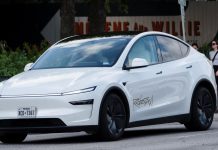
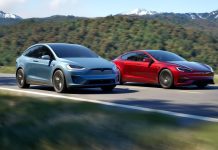

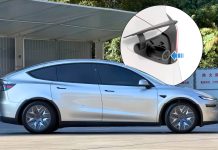
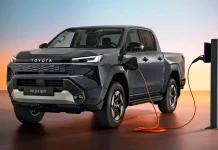









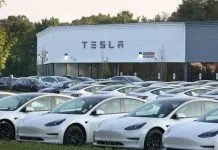
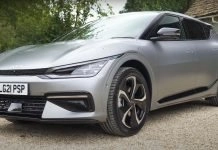
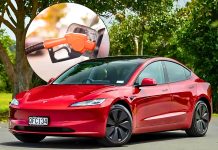
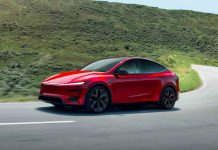
report on hydrogen v. electric vehicles. You seem to have forgotten that electricity needs to be generated too and this is often from gas, oil or coal fired power stations. Incidentally, have you forgotten that petrol is highly inflammable and dangerous too?
Electric are environmental friendly big BS, as long as rare earth metals and the way they are mined, processed and disposed partly non recyclable, they are as worse as gas
James May long-term tested this question on Drivtribe last year.
No mention of the enviromental impact of mining for lithium for battteries…..not quite aa eco-friendly as portrayed !!
Hydrogen everyday as long as it can make it’s own hydrogen from water. And this can be done it’s been done 3 times and every time the inventor was murdered, latest in a school shooting in America the ex police officer was on the news regarding his electric car before the false flag school shooter who traveled 200 miles to kill kids, well the security guard was the inventor. This wasn’t school shooting it was a false flag to kill him. I won’t buy either yet they make these so it costs money to fuel them but there are other ways. Stick you electric up your arse
Wow, your an idiot!
Love the idiots with the “not as environmentally friendly for this and that reason” comments. The cars themselves are zero emissions, unlike gas powered. No talk of how damaging it is to produce gasoline though. Still cleaning up massive oil spills from when I was a child many moon ago. “The electricity they need are generated by gas blah blah blah” and? So is your house in these exact cases, duh! At least they are trying to do something to help the planet and future generations, what are you bums doing to ensure a clean future for your children/grandchildren? So little critical thinking or common sense left amongst the trogs still pining for the days of yore. Even at the breakneck pace electric vehicles are coming, it will be millenniums before they have close to the environmental impact gas cars have in the hundred plus years they’ve been available. With the last 40 or so decades being the worse as far as pollution goes. All the information is out there, try looking beyond your tainted scope and wake up to how slavish you are being to your gasoline overlords. (Btw that’s OPEC, not even an American institution, pathetic)
Totally agree, hydrogen being more efficient had me laughing out loud! If an electric car can travel 4-5 miles on a kwh of electric a hydrogen car does on mile! How is hydrogen more efficient? Only in someone’s dreams. And hydrogen from water nobody was murdered as some poster suggested, its just very energy intensive to produce. Hydrogen from gas is very polluting it’s just a big oil nonsense again
As mentioned above most people have no idea where the electricity is being produced there are many thousands of diesel and gas generators around the country that top up the grid spread all around the country, add to that emissions from brakes and tyre rubber particles and of course the huge damage mining lithium etc does there is no single answer.
Throughout your article author reminded the reader again and again that hydrogen vehicles don’t emit pollutants. However, in the same article she wrote that:
“Another downside to owning a hydrogen car is that it can emit pollutants, such as nitrogen oxides and carbon monoxide. However, newer models of these vehicles are becoming more efficient and emitting less pollution.”
Which one is it?
Agree, the ‘facts’ in this article were dodgy as. Hydrogen cars don’t emit any more pollutants than an ev when driving, and less when being produced. Unless you think clean water is a pollutant
I held a PhD in chemistry. I am puzzled to read that hydrogen fuel cell car would emits nitrogen oxides and carbon monoxide.
Took me a while to realize they do. They probably emit the same amount of carbon monoxide from the air they intakes.
It doesn’t take a PhD to say the author doesn’t understand chemistry.
Electric power is generated by sun and by hydro free one time infrastructure cost
Long article, very weak.
It takes three times the every per mile to fuel a hydrogen vehicle compared to an electric vehicle. Somehow this point was completely missed by the author.
That means the energy costs are three times higher from hydrogen. The energy is so expensive that manufacturers have been including three years of “free” energy with the purchase of the car to hide the cost
If this energy is supplied by renewables it means that there will need to be three times as much, delaying or preventing a clean energy future.
Also, the author does seem to bury the led. In the USA, hydrogen cars are not even an option out side of a couple of locations in California. If you live anywhere else, hydrogen is not an option.
A few points need to be made. Lithium batteries are the primary choice for electric vehicles, and the footprint for lithium mining is far more damaging than most people are aware of. In addition, lithium batteries have a lifespan, and although many claim it can be recycled, there are no clean ways to dispose of it.
There is limited infrastructure in place for hydrogen fuel, but people also don’t realize how limited electrical infrastructure is. Most systems in North America are currently running at or near capacity. Upgrading these systems is not as simple as just adding on. Massive overhauls would be required to meet the expected demand EV’s will add to already taxed systems.
Some regions create “clean” electricity by putting up dams and flooding excessive areas in the process. Other regions burn fossil fuels including coal and natural gas for reliable energy sources. Depending where you live, your EV should be classified as a coal powered vehicle as that’s how the electricity to charge your EV is created. Although solar and wind are greener energy sources, they are both weather/climate dependant. Solar also creates an abundance of waste once equipment reaches the end of life.
I agree fully that we need to distance ourselves from fossil fuels, but I don’t believe EV’s are the effective solution that many believe it to be…especially politicians that suddenly become a expert in there field after being appointed to a cabinet or similar position with no formal education in or expertise in that field.
If you compare the two vehicles, I see very little difference. Both use electrical energy to move them. Both use electric motors to move them so no advantage for either there.
Battery vs hydrogen cell?
Battery
How many tons of material are needed to make a battery plus the heavy equipment it takes to move it? What is cost and environmental impact will reprocessing the battery cost?
The present electrical grid will need to increase captivity by more than three time.
Cover all of the country with solar cells and wind generators and you still come up short.
How much is this going to cost? $$$$$
Hydrogen
Min-nuclear power plants along with solar cells and wind generators can produce all the green hydrogen needed for all of our transport needs. Fuel cells will be much less costly to build compared to the battery.
Cars, truck, large transport carriers, trains, airplanes and ships. The Shuttle is powered by hydrogen.
Stop spending all of these dollars on something that will not provide the energy for all our future needs. Start installing fueling stations along side all of these electrical stations and see the results.
Look at who is pushing the battery. That tells you who has there hand in the till.
Nonsense! An electric car can travel 4-5 miles on a kwh of electric a hydrogen car will travel 1 mile on that same 1 kwh of electric, so you would need 4 times as much electric generation to run hydrogen cars and that’s fuel cell cars. Also cold wet weather equals hydrogen nozzles freezing up! It’s a waste of time and playing into the hands of big oil
I think there’s probably a nicer way to tell the author that she needs to do a little more research. She needs to understand that electricity is generated from a variety of sources that create pollution. She also needs to understand that the transmission of electricity is about 60% efficient; in other words, 40% of what’s generated is lost in the transmission from the power plant to the house. Also, probably need to consider the pollution is not only generated by the production of batteries, and excavation of materials, plus the limited supply of materials, but also the disposal pollution created by throwing away the batteries.
Electric cars are worse enviromentaly than any other vehicle. Hyped up media has made electric seem good but anyone with half a brain can do the maths and see through the flawed science that supports the electric industry. Having been a mechanic all my life listening to so called scientists who say leaded fuel was no good so unleaded then acid rain then diesel is the go oh but then lpg is the go oh but thats no good either. And dont get me started on a/c gas. Its all bs and money driven.
This article is not fact based and it’s purpose is not to inform. This was written to sell ads and collect email addresses of the commenters.
Batteries are the worst case scenario,
Reason: look at how the Batteries are made and the materials used and to mine those materials
Why hydro cell, hho and hh+ are easily made without damaging the earth and the exhaust produces water, look for yourself